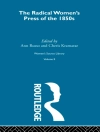In Frank Frankfort Moore’s ‘Well, After All’, the reader is taken on a riveting journey through the Victorian era, exploring themes of love, society, and moral dilemmas. Moore’s eloquent prose and attention to detail transport the reader back in time, immersing them in a world of complex relationships and societal expectations. The novel is a prime example of Victorian literature, with its focus on class distinctions and romantic entanglements. The characters are vividly portrayed, drawing the reader into their lives and struggles. Moore’s writing style is both engaging and thought-provoking, making ‘Well, After All’ a compelling read for any lover of classic literature. As a respected literary figure of his time, Moore brings a unique perspective to the themes explored in the novel. His own experiences and observations likely influenced the creation of the story, adding depth and authenticity to the narrative. Readers interested in exploring the nuances of Victorian society and human relationships will find ‘Well, After All’ to be a rewarding and captivating read.
Yazar hakkında
Frank Frankfort Moore (1855-1931) was a prolific Irish novelist, poet, and playwright known for his work in the late Victorian and early Edwardian era. Born in Limerick and educated in Ireland, Moore possessed a notable literary talent that allowed him to delve into various genres. Cultivating a career in journalism, he initially worked as an editor before dedicating himself entirely to writing. In ‘Well, After All, ‘ Moore showcases his characteristic literary style that often blends wit with a satirical edge, reflecting the societal mores and the human condition of his time. Combining social commentary with entertainment, his writing encompasses a light-heartedness that endeared him to a broad readership. Moore’s bibliography includes titles such as ‘The Jessamy Bride’ and ‘The Millionaires, ‘ where he demonstrates a strong narrative technique and a penchant for creating engaging characters. His work attracted both critical and public attention, cementing his place in the literary canon of the period. While not as widely remembered today, Moore’s contribution to literature during his prolific career remains of interest to scholars studying the literary trends and cultural narratives of the turn of the 20th century.












